Affiliate links on Android Authority may earn us a commission. Learn more.
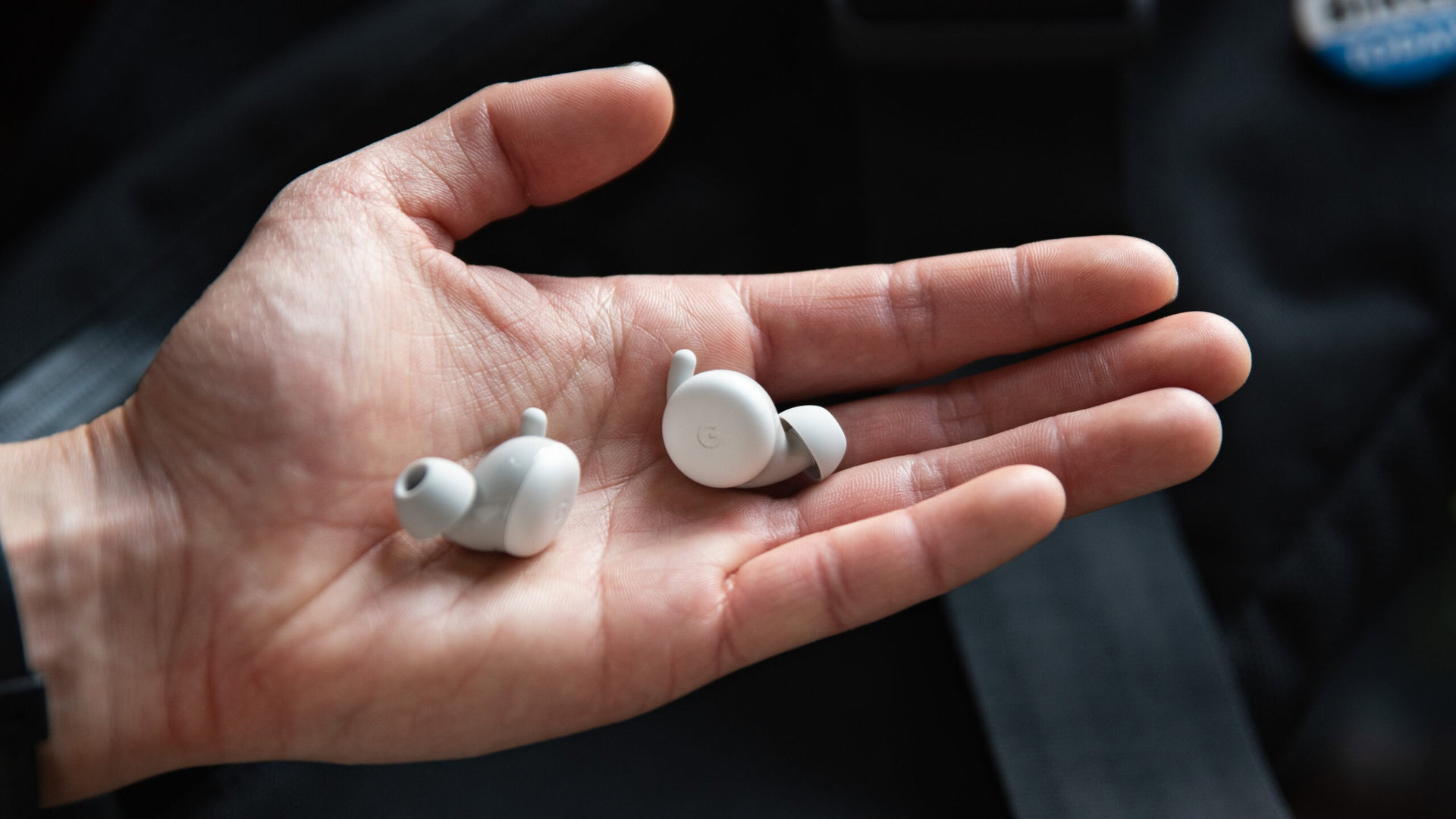

Google Pixel Buds A-Series review: Simple, affordable buds for Android phones

Google Pixel Buds A-Series
MSRP:
What we like
What we don't like

Google Pixel Buds A-Series
Like Google Pixel A smartphones, the Pixel Buds A-Series earbuds offer a powerful budget experience. Listeners recognize Google’s Pixel Buds for their simplicity and ease of use. The Pixel Buds A-Series set out to prove that you can have a great, premium earbud experience for less than $100. With sophisticated hardware and software powering these buds, it’s easy to forget the importance of sound quality. Does Google nail the basics with these modern buds? Learn more in our Google Pixel Buds A-Series review.
Update, July 2023: To expand the FAQs section and ensure all information is current.
Google Pixel Buds A-Series review: What you need to know
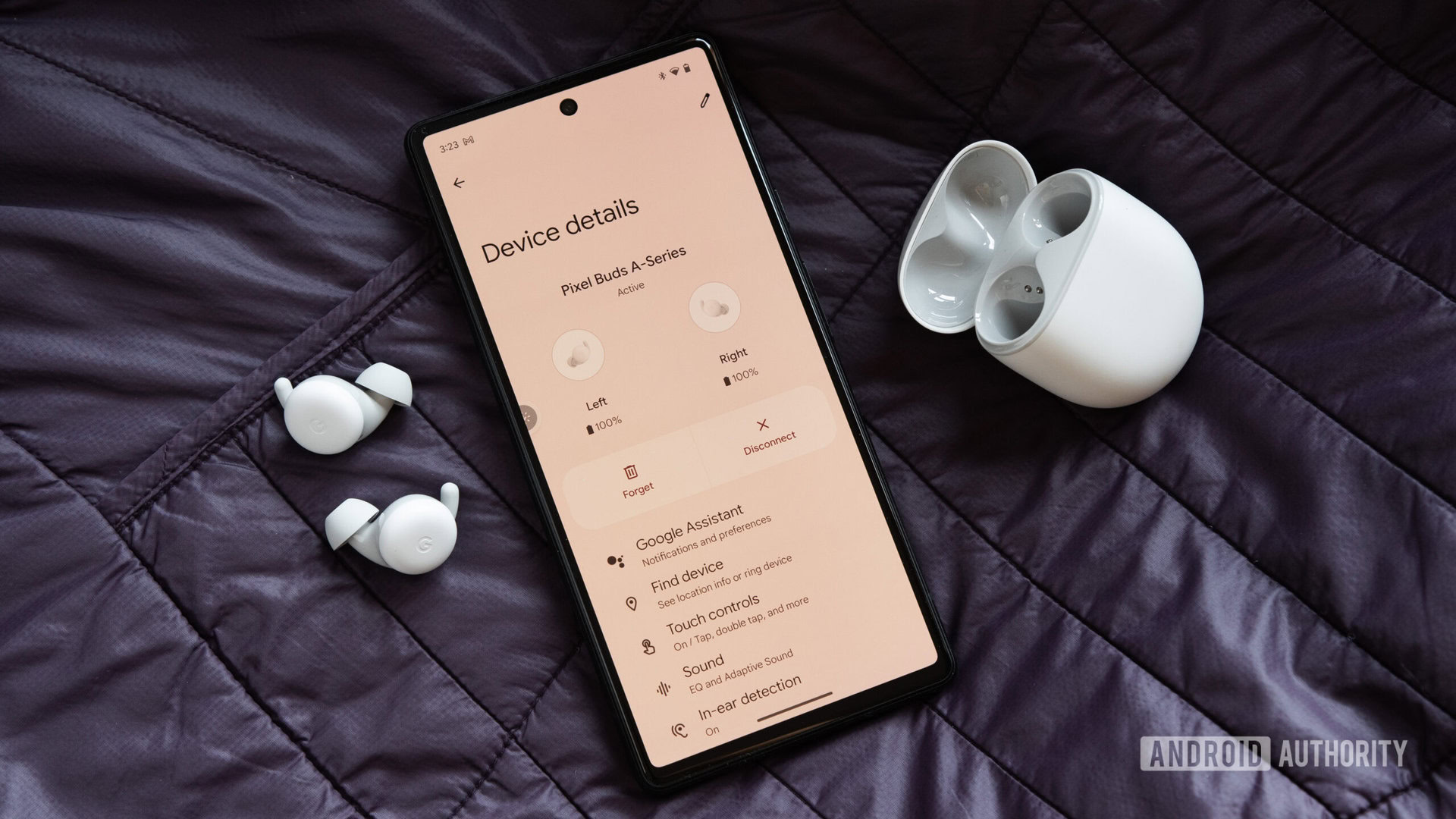
- Google Pixel Buds A-Series: $99 / €99 / £99
The Google Pixel Buds A-Series preceded the Pixel Buds Pro and hit the market on June 17, 2021. Simpler than the Pro variant, the A-Series are a fairly priced entry point into Google’s ecosystem.
Matching Google’s software and hardware, the Pixel Buds A-Series have a flat design and shape that’s a bit snail-like. Wing tips protrude from the A-Series earbuds, distinguishing them from other Pixel Buds. Touch panels make it easy to control media playback without reaching for your phone. Full hands are no obstacles for the A-Series since you can say “Hey, Google” to make commands or inquiries via built-in Google Assistant support. Removing the earbuds pauses playback, and inserting them resumes it. An IPX4 rating protects the earbuds and makes them a safe pick for exercise.
Unlike the Pixel Buds Pro, the Pixel Buds A-Series lack active noise canceling, so blocking out noise with the A-Series requires a good fit. To help, Google supplements the default medium ear tips with small and large alternatives. A-Series owners can experience spatial audio, but like noise canceling, Google reserves head tracking for the Pro variant. This requires a Pixel 6 or Pixel 7 series phone and compatible content. Only then will you be at the center of the action.
The A-Series are a non-noise canceling, pared down version of the Pixel Buds Pro, but with a more budget-friendly price.
The Pixel Buds app for Android lets users update their Google Assistant preferences and receive spoken notifications. Other options include equalizing the sound and enabling different sound modes. You can also enable automatic ear detection, which pauses playback when you remove the earbuds and resumes it when you reinsert them. If you have a recent Pixel phone, you will be able to access all of this from the device’s Bluetooth menu instead.
Google’s more affordable earbuds have the same Bluetooth specs as the Pixel Buds Pro. The A-Series connect to smartphones via Bluetooth 5.0 and work with the SBC and AAC Bluetooth codecs. Listeners can use Google Fast Pair with Android 8.0+ devices for one-step pairing when opening the case for the first time. There is no multipoint connectivity like you’ll find on the Pixel Buds Pro.
With a standalone battery life of five hours and 19 extra hours from the case, the Pixel Buds A-Series should last at least a week. There is no wireless charging, but the case can fast charge the earbuds. Five minutes of charging provides 60 minutes of music listening.
The Pixel Buds A-Series have four colorways: Clearly White, Dark Olive, Charcoal, and Sea. They debuted for $99 and often go on promotion for $69.
What I like about the Pixel Buds A-Series
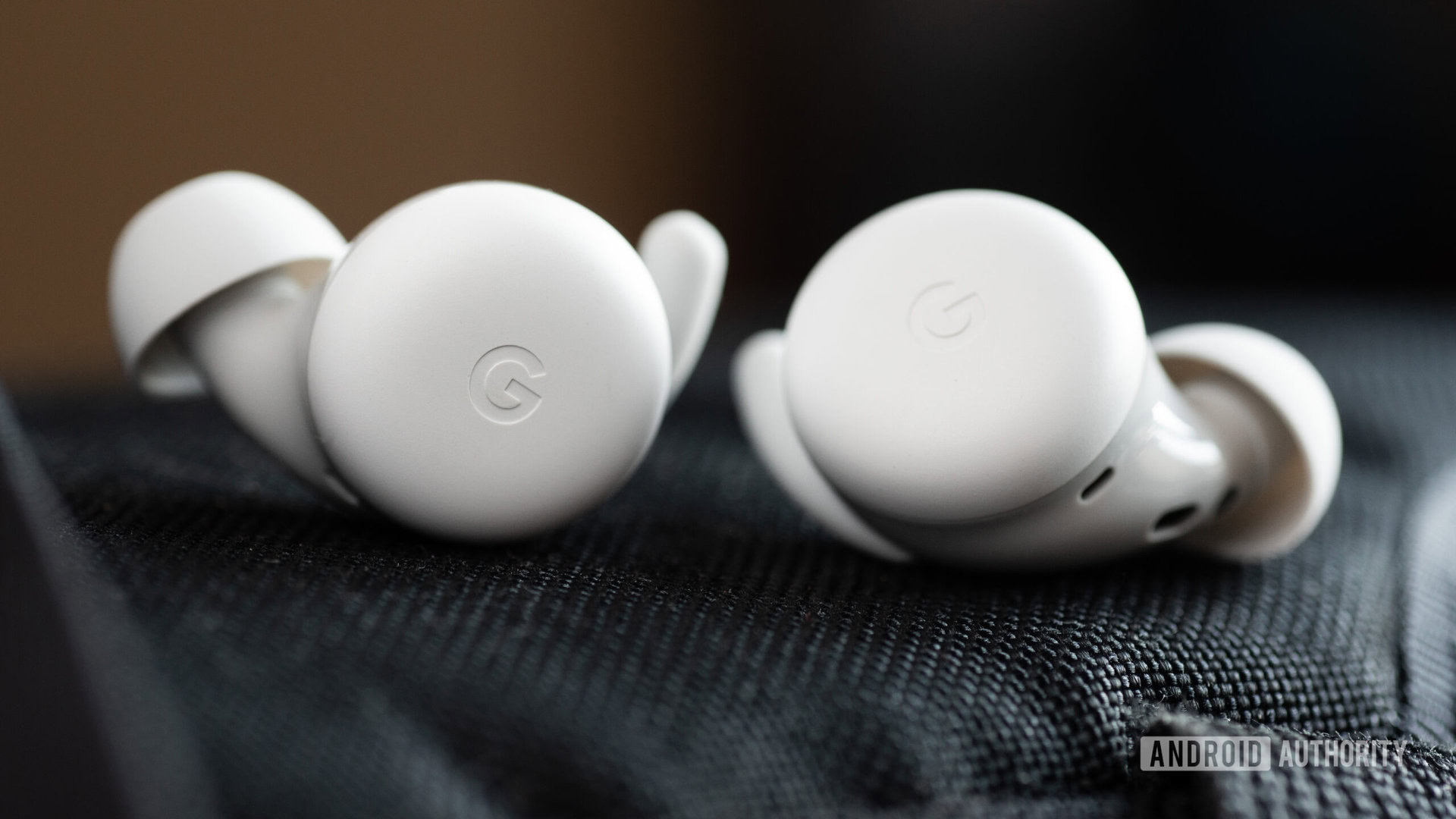
The Google Pixel Buds A-Series feature nearly identical build quality compared to the higher caliber Pixel Buds Pro. Deviating from the Pro model, the A-Series have permanent wing tips that secure the buds to your outer ear. As hard as I tried to shake the buds loose, it only caused a bit of dizziness. However, I had to be more intentional with inserting the Pixel Buds A-Series than other earphones like the AirPods Pro (2nd generation). Rather than set the buds in my ears and forget about them, I had to rock them back and forth as Google suggests.
Once in place, I could make commands by saying, “Hey, Google,” or interacting with the buds’ touch panels. Akin to the Pixel Buds Pro, the A-Series touch panels are perfectly calibrated. Brushing my hand over the buds to adjust my beanie never led to command misfires as it has with other earbuds. The only downside to Google’s command layout is that there’s no way to adjust the volume with touch controls.
Over my time with the Pixel Buds A-Series, I grew to love Google’s spatial vents. Google isn’t the only company with a pressure-relief system, but its vents improve comfort more than others. I didn’t realize how uncomfortable other earbuds made me feel due to their hermetic seals. With the Pixel Buds A-Series, I don’t get that plugged ear sensation or feel disoriented. While this makes the fit more comfortable, it comes at the expense of good isolation. (More on that in the next section.)
The Pixel Buds A-Series are excellent earbuds if you hate that plugged ear sensation that other earphones cause.
Google’s software is quite useful too. Android phone owners will want to download the Pixel Buds app. Sorry, Apple fans, there’s no Pixel Buds app on iOS. This app gave me access to basic features like toggling the touch controls and in-ear detection on or off. More importantly, it facilitated firmware updates. You’ll want to update your Pixel Buds A-Series immediately. Google has remedied the earbuds’ initial volume problem and more.
Upon their release, the Pixel Buds A-Series had a Bass Boost mode that you could toggle on and off. Google has since nixed that mode and added a bass slider that ranges from -1 to +4. With this slider, I could control how much bass I wanted, which is necessary given the buds’ weak default bass response. Playing around with the slider, I found that +1 sounded best. This setting boosted male vocals and kickdrums in the song Stranger by Miki Fiki without overpowering the horn section and cymbal hits. Jumping from +1 to +2 was too much bass for me, and 0 made the kick drum far too quiet. Ideally, I’d fall between 0 and +1.
When connected to a Google Pixel 6, the Pixel Buds A-Series work with Google’s spatial audio. This feature isn’t quite as advanced as the Pixel Buds Pro with head tracking, but it works well. When watching the climax fight scene from Spider-Man No Way Home with spatial audio, MJ and Peter Parker’s voices reverberated through space when they yelled for one another. Turning it off made the scene feel less intimate and urgent since I couldn’t hear the same degree of reverb. I preferred leaving spatial audio on for video content, even though it drained the buds’ average battery a bit faster.
What I don’t like about the Pixel Buds A-Series
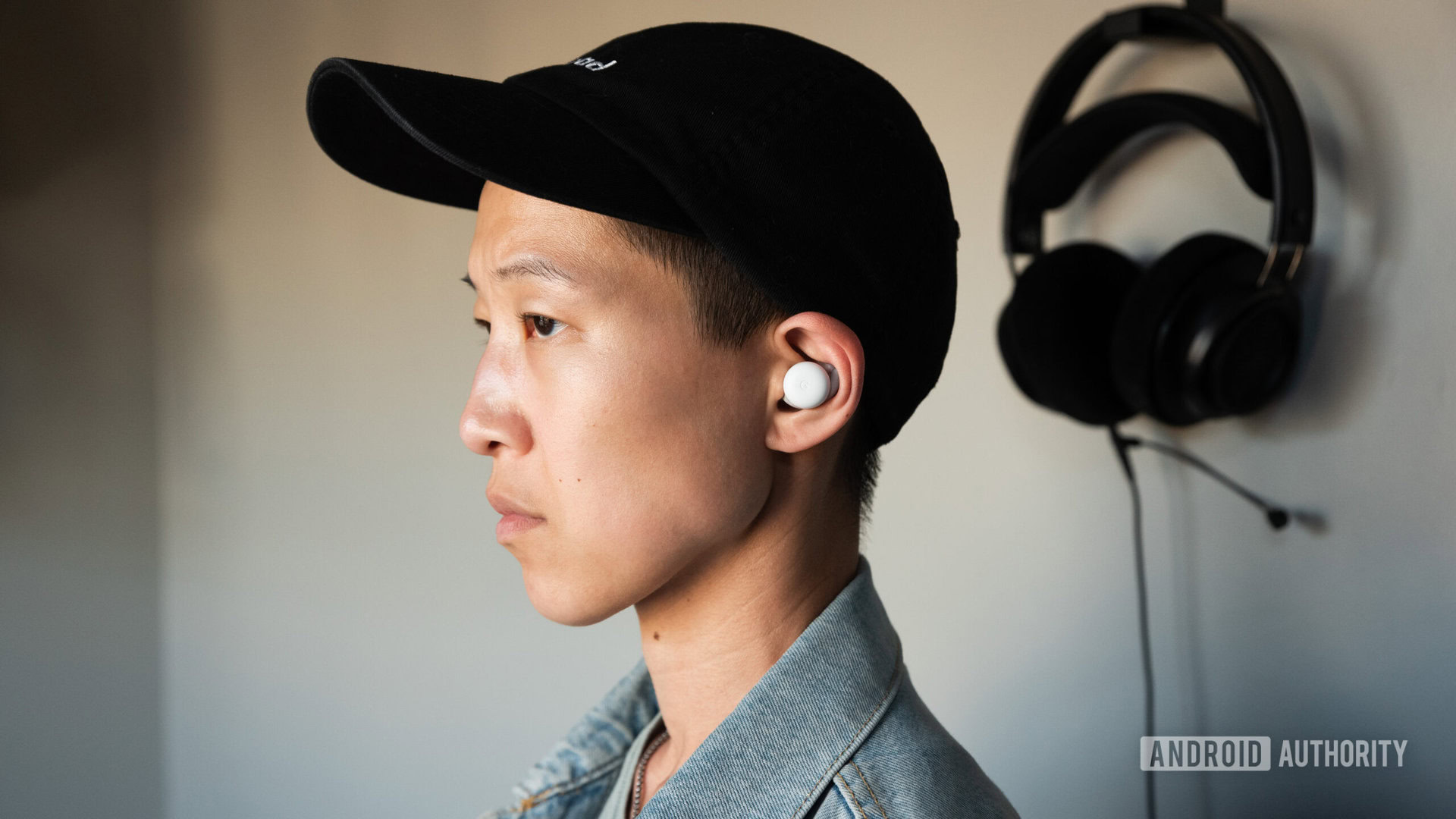
Although Google can craft modern hardware with advanced features, it hasn’t mastered sound quality. Out of the box, I noticed the lack of bass made the treble sound far too loud. As you may surmise, music sounded bad with the default settings. To Google’s credit, podcasts sounded okay, but even then, lower voices were a bit hollow. If you buy these earbuds, you will hear a huge improvement from the in-app bass slider. It would be nice to affect the mids and treble, especially since Google added this functionality to the Pixel Buds Pro. Baby steps, I suppose.
Remember earlier when I praised Google for its spatial vents? That’s still true, but the venting and gentle seal come at the expense of isolation. I’d place the A-Series isolation between earbuds and open ear headphones like the Galaxy Buds Live. Wearing the A-Series, I can clearly hear A/C rumbles, street noise, and nearby conversations. This could be a big strike against the A-Series. As someone who commutes by foot and bike, I actually appreciated the poor isolation. However, I’d spring for other earbuds if I planned to travel or study in crowded cafes. The Pixel Buds A-Series don’t quiet low frequencies — these comprise a train car’s rumble or a neighbor’s lawnmower.
You'll need to move the bass slider in the Pixel Buds app for the A-Series to sound good.
Something else that irked me was the audio-visual lag when streaming videos. Whether watching videos from YouTube, Hulu, or Netflix, people’s mouths were a half-second to one second ahead of their voices. This delay made it difficult for me to focus on the content itself. Had Google added aptX support to the Pixel Buds A-Series, the latency would have been a non-issue.
While I think the Pixel Buds A-Series provide one of the smoothest earbud experiences for anyone with an Android phone, Google’s Find My Device feature is underwhelming. With this, you can ring either earbud to find it nearby or see its last-known location on a map. Even Samsung’s Find feature is more impressive and lets you navigate to the Galaxy Buds’ last-known location. Funnily enough, you can map your way to a phone’s last-known location through Google Find My Device but not the Pixel Buds’. Google falls completely flat when compared to Apple’s powerful Find My network.
During my Pixel Buds A-Series review testing, I noticed features missing from the buds that I’ve seen in other similarly priced products. Google’s earbuds don’t have onboard volume controls or a way to customize the controls at all. You’re stuck with Google’s default options. Further, Google omits a transparency mode to amplify background noise through the buds. In all fairness, this isn’t necessary, given that the buds don’t do much to block out noise. Its omission is strange since transparency mode is a given these days.
To round all my grievances out, we need to address microphone quality. Like many earbuds, you can take calls with the Pixel Buds A-Series from quiet spaces. However, when you speak from a somewhat noisy place, your conversation partner will have a hard time hearing you. In the demo below, my voice almost completely drops out in the intro. The buds were trying to suppress background noise but hushed my voice in the process.
Google Pixel Buds A-Series microphone demo (Non-standardized):
Google Pixel Buds A-Series specs
| Google Pixel Buds A Series | |
|---|---|
Dimensions | Earbud: 29.3 x 20.7 x 17.5mm Case: 63 x 47 x 25mm |
Weights | Earbud: 5.1g Case: 42.5g |
Bluetooth connectivity | Bluetooth 5.0 SBC, AAC |
Water resistance | Earbuds: IPX4 Case: None |
Battery life | Earbuds: 5 hours Case and earbuds: 24 hours |
Charging | USB-C |
Audio hardware | 12mm custom dynamic drivers Pressure relief vent |
Mics and sensors | Dual beamforming microphones Touch capacitive sensors IR proximity sensor Motion detecting accelerometer |
In ear detection | Yes, pause/resume music |
Spatial Audio with head tracking | No |
Noise canceling | No |
Transparency | Yes |
Ear tip selection | S, M, L |
Compatibility | Any Bluetooth 4.0 device (Android/iOS) Full compatibility: Android (6.0 or later) Google Account Google Assistant enabled phone Internet connection Spatial Audio requires Google Pixel 6 or 7 series phone running Android 13 |
Colors | Clearly White Dark Olive Charcoal Sea |
Release date | June 17, 2021 |
Price | $99 |
Should you buy the Google Pixel Buds A-Series?
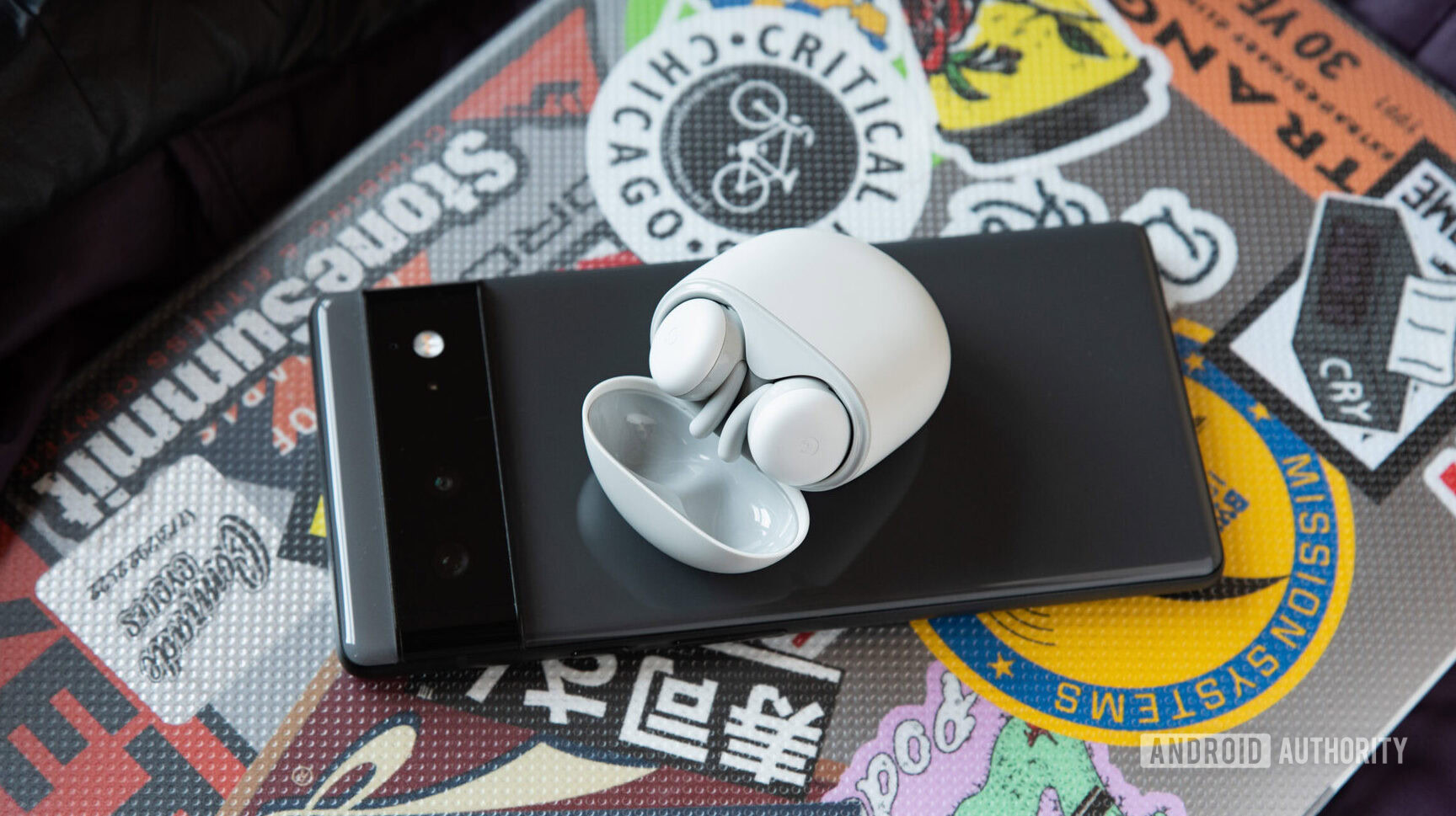
The Google Pixel Buds A-Series are a superb buy for the generalist listener. Smooth Android performance and a host of options through the Pixel Buds app make these stand out from the chaff. Moreover, the Pixel Buds A-Series hardware looks like the Pro, making them feel more premium than the price suggests.
For $99, you won’t find earbuds more streamlined for Android than the A-Series. You will, however, find earbuds that sound better and block out more noise. The microphone quality left me wanting more too. And of course, we don’t recommend these buds if you have an iPhone due to the lack of software support.
For $99, you won’t find earbuds more streamlined for Android than the Google Pixel Buds A-Series.
While there is no one-to-one alternative for the Google Pixel Buds A-Series, the Samsung Galaxy Buds 2 ($99 at Amazon) are similar and more prestigious. The Galaxy Buds 2 often go on sale for around $100, and unlike the A-Series, Samsung’s buds have noise canceling. You get some bonus features when pairing the Buds 2 with a Galaxy phone. Even still, these remain great Android earbuds to pair up with any phone, replete with an ear tip fit test and EQ presets.
For a completely OS-agnostic experience, I recommend the Jabra Elite 4 ($79 at Amazon). These ear tips block out more noise than the Pixel Buds A-Series. I could rely on the Elite 4’s noise cancelation when I wanted to hear even less of my surroundings. Sound quality is also better with the Elite 4, and there’s a custom five-band EQ for experimentation.
At the end of the day, the $99 earbud market is a hard one to capture. Manufacturers need to make sacrifices and can only choose a few features to perfect before increasing the price. Some may find Google’s compromises unreasonable. If you want a wrinkle-free Anrdoid experience though, you’ll find it in the Pixel Buds A-Series.

Google Pixel Buds A-Series review: FAQs
No, the Google Pixel Buds A-Series do not have noise canceling. If you want active noise canceling earbuds in Google’s family, you’ll need to get the Pixel Buds Pro ($199 at Amazon).
The Google Pixel Buds A-Series are IPX4-rated and can resist sprays of water from any direction. This is a standard IP rating, and the buds cannot be submerged in water.
You may use the Google Pixel Buds A-Series with an iPhone for listening to music and making calls. You cannot access software features because the Pixel Buds app is only for Android.
To wear the Pixel Buds A-Series, find the right ear tips. Then, place the earbuds in your ear and rock them back and forth until you feel them seal off your ear canals. Your ear tips are too small if they don’t create a seal. The tips may be too big if they struggle to keep a seal.
No, the Pixel Buds A-Series case doesn’t support wireless charging.
Officially, the Pixel Buds A-Series last five hours on a single charge, with an extra 19 hours from the case. You may experience longer or shorter battery life, depending on the volume levels and what features you enable.
Thank you for being part of our community. Read our Comment Policy before posting.